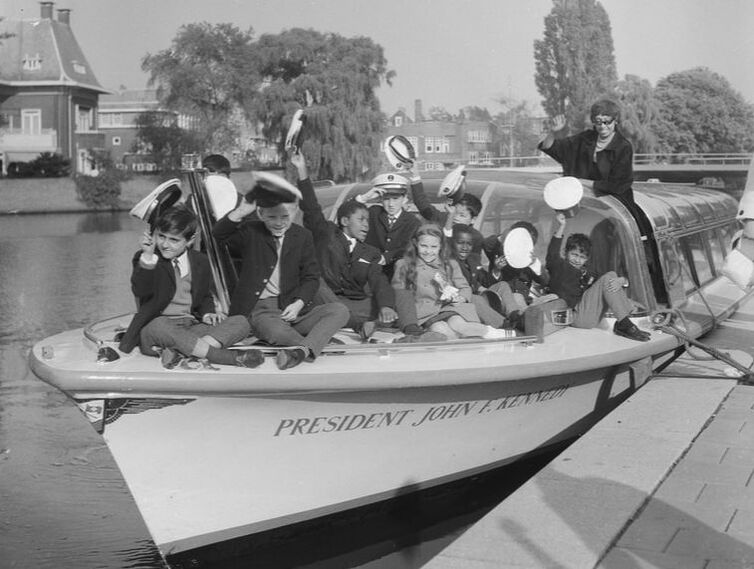|
|
|
In the 1950s, the world famous American-born entertainer Josephine Baker, who lived in France, toured the US. She was refused in 36 hotels in New York because she was black.
Back in France, Baker adopted twelve children from 10 different countries in order to prove to the world that people of all ‘races’ and religions could live together. She organised tours through the castle where she lived with her ‘rainbow tribe’ and made the children sing and dance. In the 1920s and 1930s the popular novelist Pearl S. Buck adopted seven children, four of whom were labelled ‘mixed-race’. By doing so she flaunted American restrictions on mixed-race adoptions. In the 1950s, Buck said she did so because she wanted to show that families formed by love – devoid of prejudices based on race, religion, nation, and blood – were expressions of democracy that could counteract communist charges that America’s global defence of freedom was deeply hypocritical. The adoptions by Baker and Buck were political statements that illustrate that intercountry adoptions were frequently about much more than saving a child, as many people who defended adoptions claim. My Identities article, ‘Parenting, citizenship and belonging in Dutch adoption debates 1900-1995’, explains why debates on this issue continued, without ever reaching a conclusion. Celebrities (including Madonna, Angelina Jolie and Brad Pitt) followed in the footsteps of Baker and Buck. Non-celebrities copied behaviour and arguments. Adopters tried to show that children and adults not connected by blood ties could form a family, and that single parent adoptions or adoption by same sex couples could work. Critics pointed to child kidnappings, trafficking, ‘baby farms’ and a profit-driven industry based on global inequality. Adoption was not a solution to poverty, nor in the best interest of the child, in their view.
Adoption was and is a popular subject in women’s magazines and (children’s) literature, starting with the biblical story of Moses in his basket. It features in large number of TV sitcoms (e.g. Modern Family, Sex and the City), movies and books (Roald Dahl’s Matilda, Superman). Ancestry.com offers DNA tests to find ‘your liberator granddad’, there are numerous TV shows about searching birth parents, and heritage tours to birth countries are popular.
Overall, the public and media are fascinated by adoption stories, while the issue torments authorities. This has been the case for over a century. My Identities article tackles this question of continuity by placing intercountry adoption within the context of migration, to which it legally and administratively belongs. This is an uncommon approach. By placing it in the migration context, and addressing it from a historical and comparative perspective, the interaction between discourses, policies and practices are analysed, and the continuity explained. Making children adoptable is a discursive as well as a legal process. My article bridges the divide between the private sphere (the intimacy of the family) and public sphere (of policies and treaties), and pays systematic attention to how colonialism, persistent global inequality, class, gender, sexuality, ethnicity and religion were important to the debates about belonging, failure, saviour and good/bad parenting. Children are made adoptable by emphasising that their parents, family, community and country of birth have failed them. A Janus-faced construction – saving the child, condemning its origin – explains the continued challenges for policy making.
Blog post by Marlou Schrover, Leiden University, The Netherlands
Read the full article: Schrover, Marlou. Parenting, citizenship and belonging in Dutch adoption debates 1900-1995. Identities: Global Studies in Culture and Power. DOI: 10.1080/1070289X.2020.1757252
0 Comments
Your comment will be posted after it is approved.
Leave a Reply. |
|
Explore Identities at tandfonline.com/GIDE |
|
The views and opinions expressed on The Identities Blog are solely those of the original blog post authors, and not of the journal, Taylor & Francis Group or the University of Glasgow.

